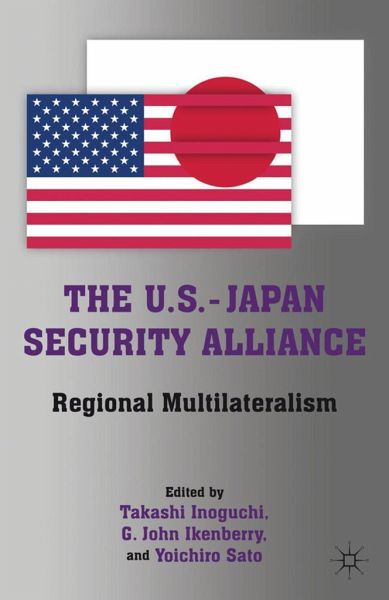
The U.S.-Japan Security Alliance
Regional Multilateralism
Herausgegeben: Inoguchi, T.; Loparo, Kenneth A.
Versandkostenfrei!
Versandfertig in über 4 Wochen
102,99 €
inkl. MwSt.

PAYBACK Punkte
51 °P sammeln!
The U.S.-Japan security alliance, which initially focused on Japan's territorial defense and then started to merge with broader U.S. global strategy, now must deal with the rise of Japan's neighbors. This edited volume puts forth an empirically rigorous analysis of the ongoing transformation of the U.S.-Japan alliance. As the Obama administration shifts U.S. foreign policy into a multilateral mode, Japan's neighbors today are more likely to voice their issues concerning the U.S.-Japan alliance. Rigorous analysis of third-party perspectives of the U.S.-Japan alliance are key to helping us understand what external challenges lie ahead in terms of managing this crucial partnership.
In this book, American and Japanese experts examine to what extent diverging priorities in the U.S.-Japan alliance are real and whether they are not remedied with political and diplomatic leadership and other processes. American and Japanese authors are paired to analyze the same topic, where doing so is possible, for comparing their perspectives.












